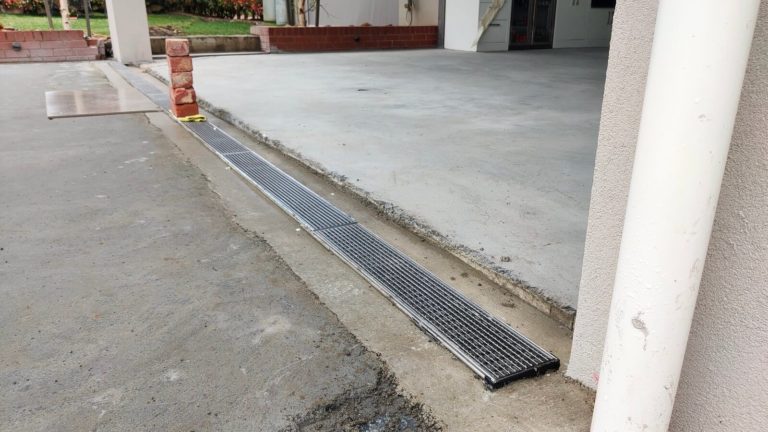Residential drainage systems play an important role in the maintenance of a home. A well-designed and functional drainage system helps to protect your home from flooding and water damage. Understanding the components of a residential drainage system and how they work together is essential to maintaining a safe and healthy home. To help you out here’s everything that you need to know about residential drainage systems.
What Makes Up a Residential Drainage System?
A residential drainage system consists of two main parts: the drainage system channels and the drainage system components. The drainage system channel carries wastewater away from your home and into the public sewer system. The drainage system components control the flow of water and prevent blockages.
The drainage system channel consists of several types of pipes, including PVC, ABS, cast iron, and other materials. PVC pipes are the most common type of channel used in residential drainage systems because they are durable and corrosion-resistant. ABS pipes are also used in some residential drainage systems because they have higher corrosion resistance and are less likely to clog.
The drainage system components control the water flow, prevent blockages, and keep the channels and drains clean. These components include drain traps, check valves, and clean-out plugs. The drain traps trap solid objects, such as hair and food particles, that may clog the channels. Check valves are designed to control water flow and can be used to prevent flooding or backflow. Clean-out plugs are used to clear blockages in the pipes and drains.
In addition to the pipes and drain components, a residential drainage system includes a sump pump. The sump pump pumps wastewater away from home into the public sewer system. Ensuring the sump pump works correctly is essential to prevent flooding and backups.
Finally, a residential drainage system should also include a septic tank. The septic tank is a storage tank that contains wastewater from home. The septic tank can be used to store wastewater until it can be safely disposed of or treated.
How Do You Maintain Residential Drainage Systems?
Maintaining residential drainage systems is essential for ensuring your home is free from water-related damage. Drainage systems collect and carry away excess water from your home. If not properly maintained, can lead to a range of issues, including flooding, pipe blockages and even foundation damage. Here are some tips to help you maintain your residential drainage system and keep it in good working order.
1. Inspect Your System Regularly: Inspect your drainage system to identify potential problems. Check for any signs of blockages, leaks or damage and repair them immediately. Suppose you notice any unusual odours emanating from your drains. In that case, this can indicate a blockage or a buildup of debris, and it’s important to inspect your system and clear the blockage.
2. Keep Your Drains Clear: Ensure that your drains are always clear of debris and foreign objects. Check the drains regularly and remove any debris, such as leaves, twigs, dirt and other materials that could cause blockages.
3. Invest in Professional Cleaning: Professional drain cleaning is essential to ensure your drainage system is in good working order. Professional cleaners can use powerful tools to clear out any blockages and remove any buildup of dirt and debris.
4. Install Gutter Guards: Gutter guards are designed to prevent leaves and other debris from entering your drainage system. They can help to reduce the amount of blockages and help to maintain clear drainage.
5. Seepage Control: Seepage control systems are designed to control water runoff and prevent it from entering your drainage system. They can help to reduce the number of blockages and to avoid damage to your foundation.
Conclusion
By understanding residential drainage systems, you can ensure your drainage system works properly and efficiently. Regular maintenance and inspections of your drainage system will help to prevent blockages and backups. In addition, you can also contact a professional plumber to inspect your drainage system regularly.
By taking the time to keep your driveway drainage system in tip-top condition, you can help to prevent water damage and extend the life of your driveway. So if you’re looking for quality stainless steel drainage systems for your driveway, look no further than Yeti Civil Products. We have the products, expertise, and customer service to ensure your driveway drainage system is installed correctly and maintained properly. Contact us today to learn more about our products and services.

